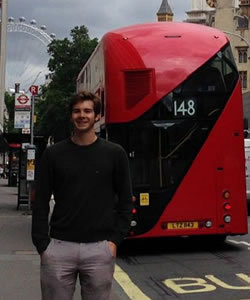Ah, those were the days. When a pint of beer cost less than 10 koruna (about 50 cents), nearly everyone had job security, and the population was equal in the eyes of good scarcity and low wages. But, as all nostalgia is gilded with retrospective optimism and the pessimism of the present, many Czechs these days just remember the beer being cheaper and work being easier to find.
Civil society, hailed by Locke and Tocqueville as the most effective bulwark against authoritarianism, is slowly eroding into public apathy and distaste for any relation to public affairs in the Czech Republic. Voter turnout in parliamentary and presidential elections has remained below 60 percent for the last ten years, not to mention less than 20 percent for EU parliamentary elections. Is this something to worry about, especially since American voter turnout sits below 60 percent as well? Perhaps, when you take into account that other components of civil society, such as the dwindling number of functional non-governmental organizations (the actual number increases every year, but only ten percent of NGOs are fully active), not to mention the near abolition of religion in the country. To top it off, support of the Czech Communist Party (KSČM) has increased in the last three years.
Another issue lies in the mentality of our generation of voters. Corruption within the government may contribute to the decreasing percentage of first-time voter participation, but a more poignant issue lies in young voters’ “solution,” namely the refusal to participate in the political system in its entirety. A student from Charles University in Prague remarked that the general sentiment is such that if you want to participate in politics, you either get involved with the corruption or sacrifice your career prospects. Moreover, college students have begun to look increasingly outside Czech borders for job opportunities in many fields from architecture to law, further emphasizing the desire to dissociate with the problem rather than to stay and work it out.
Oddly enough, from an international standpoint the Czech Republic is viewed as a leader in post-transition Eastern European countries, with perhaps Poland as the only country in a slightly better state of civil society and stable democratic capitalism. Romania, Bulgaria, and Slovakia had much less economically and politically stable routes to democracy, and Hungary’s recent semi-authoritarian turn should all point to relative happiness and optimism among Czechs, but nevertheless we see distaste and negativity towards the current system.
Could Hungary project the future course of the Czech Republic? The polarization of Hungary’s political parties along with the complete dominance of Fidesz (the national conservative party) and Prime Minister Viktor Orban at the head differ greatly from the more moderate Czech Republic, its less stratified parties, and its unpopular prime minister (and unpopular opposition, for that matter). That said, many Czechs may look at Hungary with the view of the Washington Post and notice that a move towards “illiberal democracy” can result in many needed infrastructural improvements.
All in all, could past socialism return to the Czech Republic? Certainly not. But that is not to say that the American notion of liberal democracy may not be making its exit.

